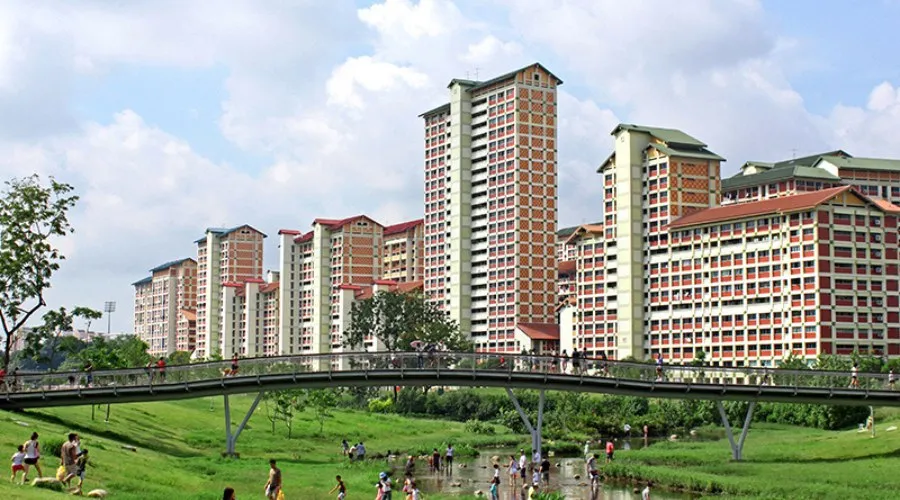The new Washington rent control law (HB 1217) caps rent hikes and expands tenant protections statewide. Landlords must understand exemptions, notice rules, and compliance steps. With LeaseRunner’s guidance, managing leases under this law is simpler and more secure.
Washington Rent Control Laws: What’s New in 2025?
Washington enacted its first state-wide rent control law amid a severe housing crisis, marked by scarce rental supply and skyrocketing prices. It was introduced as HB 1217, part of the Housing Stability Act (May 7, 2025). The purpose is to protect tenants from extreme rent increases by landlords. To understand how these updates fit within broader U.S. regulations, you can also explore state landlord-tenant laws.
As records, the state is the third state, after Oregon and California, to adopt rent control at the statewide level. These state-wide laws operate differently from other states that only have local rent ordinances, or New York State, which applies rent control and rent stabilization programs.
Washington’s participation in the state-wide rent increase policies would help stabilize rents and protect tenants from extreme rent increases by landlords.
Washington Statewide Rent Control Laws (HB 1217)
Washington rent control laws provide rent increase guidelines, including rent increase limits, exemptions from increases, notice rules, and eviction protections. The whole state applies a system of uniform rules without any local rent control ordinances, like some other states. These state-wide laws reduce confusion, ease compliance for landlords, and ensure consistent tenant protections. This plays a key role in promoting long-term housing affordability and stability. Resources are available on LeaseRunner’s Washington landlord page.
Key highlights of Washington's rent increase laws
HB 1217 creates a clear statewide framework for regulating rent increases. The law applies mainly to:
- Multifamily residential buildings (apartments, duplexes, triplexes)
- Rental homes occupied by tenants under a lease agreement
- Manufactured or mobile home lot rentals
Certain properties are exempt, such as newly built units within the past 15 years and some single-family homes owned by small landlords. To stay compliant, landlords should use lease agreement templates that reflect current law.
Effective immediately, landlords must comply with strict limits on rent increases and provide longer advance notice. These protections give tenants:
- Predictable housing costs → protects against sudden rent hikes
- Improved housing stability → reduces risk of displacement
- Greater financial security → easier to plan budgets long-term
- Fairer landlord-tenant relationship → discourages exploitative practices

Annual rent increase limits
The centerpiece of Washington rent control laws is the cap on annual rent hikes at the lesser of inflation (CPI) plus 3% or 7% per year. This increase is always calculated on the base rent, which serves as the reference point for applying the annual rent hike limit. The rent cap also applies to mobile and manufactured homes.
The rent control law also gives landlords stricter rules on the frequency of rent increases and notice requirements. We will discuss this topic further in the sections below.
Exemptions from the Washington Rent Control Laws
While HB 1217 applies broadly, several exemptions balance tenant protections with incentives for landlords and property owners.
New construction for 12 years
New residential units are exempt from rent caps for the first 12 years after receiving their occupancy certificate. This policy encourages new housing supply in high-demand areas like Seattle by allowing developers to set market rates in the early years.
Nonprofit organizations and public housing authorities
Properties owned or managed by nonprofit organizations and public housing agencies are not subject to the rent increase limits. These groups already focus on affordability, reducing the need for additional regulation.

Owner-occupied units (duplexes, triplexes, and fourplexes)
Small multi-unit properties-duplexes, triplexes, and fourplexes-where the landlord lives on-site are also exempt. This exemption gives small-scale landlords flexibility while recognizing their direct investment in the property.
Rent Increase Requirements for Washington Landlords
Understanding how Washington rent control laws regulate rent hikes is key for both landlords and tenants. Below is a breakdown of the rules under House Bill 1217 (HB 1217), also known as the Housing Stability Act.
Notice requirements for the rent increase
Landlords must conduct the rent increase notification process. They are required to give tenants a written notice, using rent increase templates, within a given period. It’s between 60 and 90 days before raising rent. This extends the previous 30-day rule for increases under 10%. To be valid and enforceable, a rent increase notice must clearly include the following information:
- Tenant and landlord details: Full names and property address.
- Notice period: A clear statement that tenants are given between 60 and 90 days’ notice.
- Rent increase amount: The exact dollar amount or percentage of the increase.
- Effective date: The date when the new rent takes effect.
- Legal reference (if applicable): Cite the law or regulation requiring this notice period.
- Tenant rights: Option for tenants to seek legal counsel or alternative housing if needed.
To avoid compliance errors that may later cause disputes or eviction challenges, tools like LeaseRunner’s eviction check service can help landlords verify documentation and tenant history.
How to calculate rent increase legally
HB 1217 caps annual rent increases at the lesser of inflation (CPI) plus 3% or 7% per year. Inflation is based on the Consumer Price Index (CPI) for the region, published by the U.S. Bureau of Labor Statistics.
- Example 1: If CPI is 2%, the max rent increase is 9% (7% + 2%).
- Example 2: If CPI is 5%, the increase is limited to 10% (since it cannot exceed the cap).
Landlords must calculate the increase from the current rent amount and follow the effective date listed in the notice. Any increase above this limit is a violation unless the property is exempt.
Situations where rent increases are not allowed
Washington rent control also stops rent increases in some cases. This helps protect tenants from unfair practices.
- First 12 Months of Tenancy: Rent cannot be raised unless outlined in the lease and within the cap.
- Retaliatory Increases: Landlords can’t raise rent if tenants ask for repairs or file code complaints.
- Non-Compliant Properties: No increases are allowed if a property fails habitability standards or has outstanding code violations.
- Fixed-Term Leases: Rent stays the same during the lease period. Any rent increase only takes effect at the end of the fixed-term lease.
Enforcement and penalties for landlords
The Washington Attorney General’s Office enforces these rules. They investigate complaints and can issue fines up to $2,000 for each violation. Since August 2025, many landlords have faced penalties. They exceeded rent caps or didn’t give proper notice. Tenants can file complaints online or with local housing agencies. Courts may order refunds for overpaid rent and damages.
Eviction Protections for Washington Tenants
Washington rent control laws not only limit rent hikes but also boost eviction protections. This helps keep tenants safe in their homes. These safeguards aim to prevent unlawful displacement and balance landlord-tenant rights.
Just-Cause Eviction requirements
Under Washington rent control laws, landlords cannot simply end a tenancy without a valid reason. After the first 12 months of occupancy, any eviction must be based on just cause as defined by state and local regulations. This rule protects tenants from arbitrary or retaliatory removals and ensures stability in rental housing.
There are two main categories of just-cause grounds:
- At-fault causes: These occur when the tenant has violated the lease agreement or the law, such as failing to pay rent, causing property damage, or engaging in illegal activity.
- No-fault causes: These apply when the landlord has legitimate reasons unrelated to tenant misconduct—for example, the landlord or their family member moving into the property, or the landlord deciding to substantially renovate or withdraw the unit from the rental market.
Tenants’ rights against the landlord’s unlawful acts
If a landlord attempts an unlawful eviction, such as without just cause in the first six months, tenants can terminate their lease without penalty. This includes cases tied to an illegal rent increase. Tenants may also pursue legal remedies like reinstatement or reimbursement for relocation costs.
Anti-reliation protections
Landlords are prohibited from retaliating against tenants who exercise their legal rights. Actions such as rent increases, eviction attempts, or cutting essential services after a tenant files a complaint are considered illegal retaliation. Tenants can report these actions to the Attorney General. They can also take the case to court. There, they might receive damages and legal protections against retaliation.

Legal aid and local eviction prevention programs
Washington provides multiple resources to help tenants:
- Legal Aid: Groups like the Northwest Justice Project and Housing Justice Project offer free or low-cost legal help.
- Local Eviction Prevention Programs: Seattle gives emergency rental help. Spokane offers mediation at its Tenant Advocacy Center.
- State Support: The Washington Department of Commerce funds housing authorities. They help prevent evictions. You can access this help online or by calling 211.
Practical Tips for Landlords to Resolve Disputes with Tenants
Washington enacted rent control laws to stabilize rents and maintain positive landlord-tenant relationships. Yet, legal disputes may arise if either side violates the law. Here are the best practices for solving those disputes.
1. Use legal mediation services
Once a conflict arises with your renter, mediation is one of the fastest and cheapest methods to resolve it. Washington offers free mediation services.
You can find landlord-tenant dispute resolutions at the official Dispute Resolution Centers. Prepare all evidence, such as leases, written notices, rent history, and proof of property improvements. They will help both sides clarify the problem and make the mediation process smoother, including negotiating rent increases with tenants.
2. File a complaint with the Washington Attorney General’s office
The Washington Attorney General’s Office plays a key role in bridging the gap between you and the tenant to a balanced solution. By filing a complaint, the Attorney General's Office can contact the tenant on your behalf and request a response to the dispute. This can be an effective way to prompt communication and, in some cases, resolve the issue without further legal action.
3. Consult with Washington landlord-tenant lawyers
If your dispute with the tenant becomes complex, you should find a reliable landlord-tenant lawyer in Washington. They offer comprehensive solutions. These are drafting lease agreements, preparing a response to the tenant’s complaint, and advising on legal eviction proceedings. This guidance helps you avoid costly legal consequences.

Conclusion
Washington rent control laws under HB 1217 mark a major shift for landlords, setting strict caps on rent increases and expanding tenant protections. To stay compliant, landlords should keep up with annual CPI updates, understand exemption rules, and document every notice properly.
Resources from the Washington State Department of Commerce offer useful guidance. LeaseRunner is a trusted digital platform. It provides all U.S states’ rent laws and all-inclusive tenant screening services. This helps landlords manage leases with confidence. Landlords can reduce legal risks and avoid penalties by staying informed. Using reliable guidance helps them maintain good relationships with tenants. This is especially important under Washington’s changing rent control rules.
FAQs
Q1: What is the maximum rent increase under HB 1217?
The limit is the lower of 7% plus CPI or 10%. For 2025, it’s capped at 10%; in 2026, 9.683%.
Q2: Are all properties covered by Washington rent control laws?
Exemptions cover several areas:
- New construction for 12 years
- Nonprofit-owned housing
- Public housing
- Owner-occupied multi-units, like fourplexes
Q3: What are the penalties for violations?
Landlords face fines of up to $2,000 per violation, tenant lawsuits, and possible lease termination by tenants.
Q4: How can the Washington State Department of Commerce help landlords?
It offers compliance guides and updates on rent increases. It also provides resources such as the Landlord Mitigation Program.



